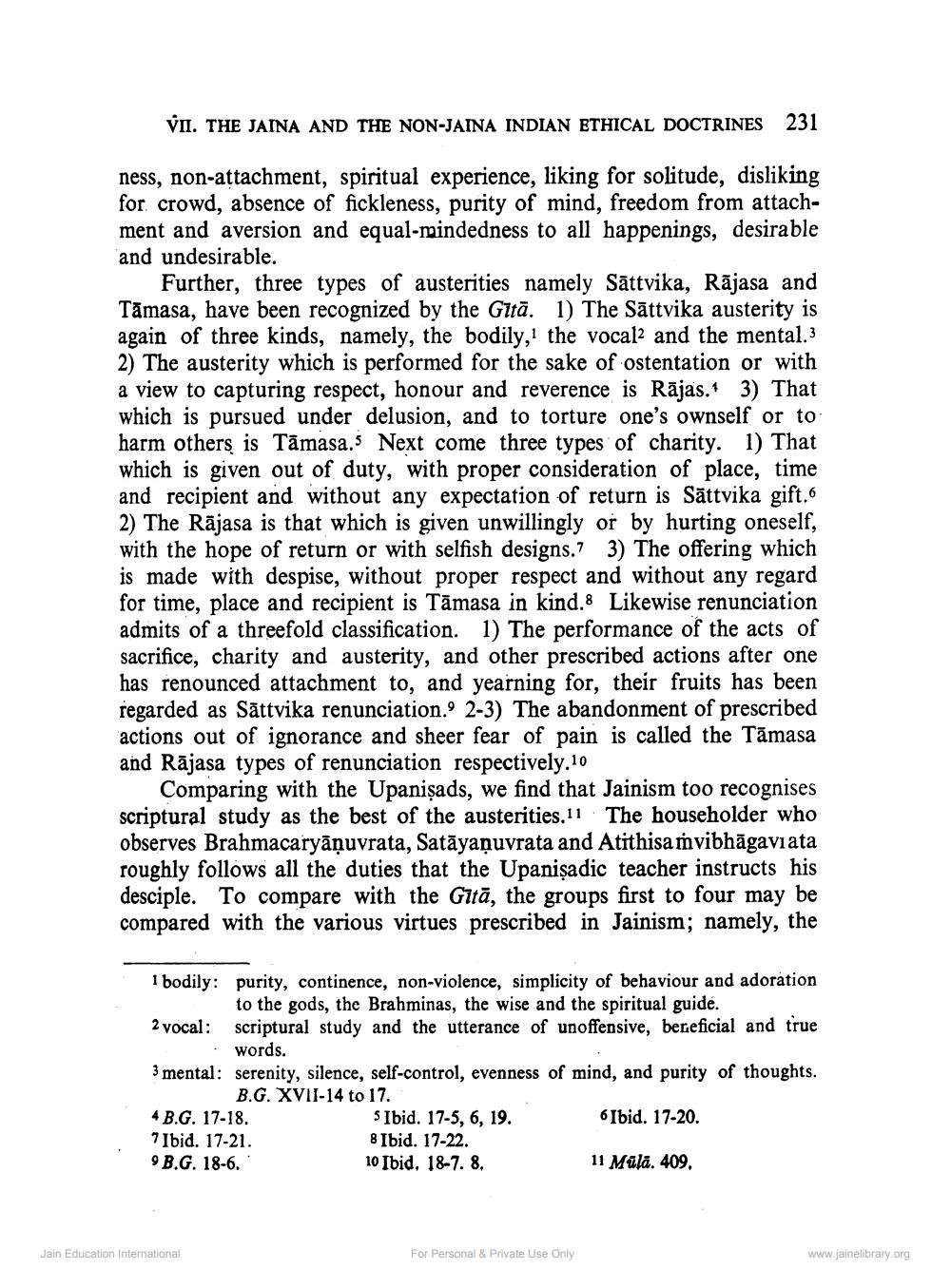________________
Vn. THE JAINA AND THE NON-JAINA INDIAN ETHICAL DOCTRINES 231
ness, non-attachment, spiritual experience, liking for solitude, disliking for crowd, absence of fickleness, purity of mind, freedom from attachment and aversion and equal-mindedness to all happenings, desirable and undesirable.
Further, three types of austerities namely Sättvika, Rājasa and Tāmasa, have been recognized by the Gitā. 1) The Sättvika austerity is again of three kinds, namely, the bodily, the vocal2 and the mental.3 2) The austerity which is performed for the sake of ostentation or with a view to capturing respect, honour and reverence is Rājas. 3) That which is pursued under delusion, and to torture one's ownself or to harm others is Tāmasa.Next come three types of charity. 1) That which is given out of duty, with proper consideration of place, time and recipient and without any expectation of return is Sāttvika gift.6 2) The Rājasa is that which is given unwillingly or by hurting oneself, with the hope of return or with selfish designs.? 3) The offering which is made with despise, without proper respect and without any regard for time, place and recipient is Tāmasa in kind.8 Likewise renunciation admits of a threefold classification. 1) The performance of the acts of sacrifice, charity and austerity, and other prescribed actions after one has renounced attachment to, and yearning for, their fruits has been regarded as Sättvika renunciation.o 2-3) The abandonment of prescribed actions out of ignorance and sheer fear of pain is called the Tāmasa and Rājasa types of renunciation respectively.10
Comparing with the Upanişads, we find that Jainism too recognises scriptural study as the best of the austerities. 11 The householder who observes Brahmacaryānuvrata, Satāyanuvrata and Atithisaṁvibhāgaviata roughly follows all the duties that the Upanişadic teacher instructs his desciple. To compare with the Gitā, the groups first to four may be compared with the various virtues prescribed in Jainism; namely, the
1 bodily: purity, continence, non-violence, simplicity of behaviour and adoration
to the gods, the Brahminas, the wise and the spiritual guide. 2 vocal: scriptural study and the utterance of unoffensive, bereficial and true
• words. 3 mental: serenity, silence, self-control, evenness of mind, and purity of thoughts.
B.G. XVII-14 to 17. 4 B.G. 17-18. 5 Ibid. 17-5, 6, 19.
6 Ibid. 17-20. 7 Ibid. 17-21.
8 Ibid. 17-22. 9 B.G. 18-6. 10 Ibid. 18-7. 8.
11 Mală. 409,
Jain Education International
For Personal & Private Use Only
www.jainelibrary.org




